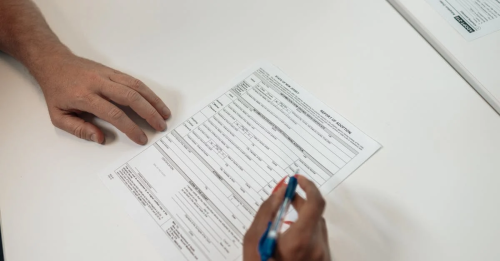Have you ever wondered how to polish your graduate essays to achieve that extra edge? Peer reviews might just be the secret ingredient you’re missing. Engaging in peer reviews allows you to receive and give feedback on academic essays, fostering a deeper understanding and improvement in your writing skills.
This beneficial practice not only sharpens your analytical skills but also exposes you to different perspectives and writing styles, making it a crucial element in mastering academic writing.
Importance of Peer Reviews in Graduate Essays

Image courtesy: Pexels
In the challenging realm of graduate studies, the quality of your written essays holds considerable weight. Peer reviews, a collaborative and iterative form of evaluation, can significantly elevate the standard of your essays, thereby ensuring not just compliance with academic norms but also the enrichment of content and argumentation style. This collaborative review process is central to academic and professional growth, offering multifaceted benefits that contribute tremendously to a student’s development and eventual success.
Benefits of peer reviews
Peer reviews in the context of graduate essays serve multiple pivotal roles. Primarily, they act as a critical form of feedback, offering fresh perspectives that might be overlooked by the writer. Here are several benefits of engaging in peer reviews:
– Enhanced clarity and readability: Peers can point out where the argument is unclear or the narrative loses focus, helping to enhance the overall readability of the essay.
– Identification of errors: From simple grammatical slip-ups to complex logical fallacies, peers can help identify errors that could detract from the credibility of the essay.
– Encouragement of critical thinking: By engaging with the viewpoints and critiques of peers, students are compelled to revisit and refine their arguments, fostering a deeper level of critical thinking.
– Reduction of personal bias: Since writers often become attached to their specific viewpoints or preferred arguments, peer reviews help mitigate this bias by introducing alternative perspectives and critiques.
– Learning from peers: Reviewing others’ work exposes students to different writing styles, methodologies, and lines of reasoning, which can inspire and influence their own writing.
How peer reviews enhance writing skills
Peer reviews do more than just polish an essay; they are instrumental in developing a student’s writing prowess. This enhancement is achieved through various dimensions:
– Iterative improvement: As essays are reviewed and revised multiple times, students learn the importance of drafting and revising, which are key processes in writing development.
– Feedback reception: Learning how to constructively receive and implement feedback is a skill that significantly aids in writing and beyond.
– Variety in expression: By encountering different styles and approaches through peer essays, students can diversify their own expression and structure in academic writing.
– Accountability: Knowing peers will review one’s work tends to instill a sense of responsibility to produce quality content.
– Empathy in critique: Engaging in peer review trains students to offer compassionate yet constructive criticism, balancing praise with useful critiques.
Setting Up a Peer Review Process
To harness the full potential of peer reviews, it’s essential to establish a structured process that facilitates effective exchanges. Setting up a clear and efficient peer review process is fundamental to obtaining useful outcomes that genuinely enhance the quality of graduate essays.
Guidelines for conducting peer reviews
Here are several guidelines to keep in mind when conducting peer reviews, ensuring they are both effective and respectful:
– Clear objectives: Start by defining what aspects of the writing will be reviewed (e.g., argument structure, use of evidence, grammar).
– Constructive language: Encourage reviewers to use positive, constructive language to foster a supportive environment that invites growth rather than discouragement.
– Specific feedback: General comments can be less useful. Train reviewers to give specific feedback that can be directly implemented.
– Mutual respect: Remind all participants to maintain a respectful and professional tone, recognizing the vulnerability involved in sharing one’s written work.
– Timeliness: Feedback should be timely so that the writer can implement the suggestions before the final submission of the essay.
Tools for facilitating peer reviews
To streamline and enhance the peer review process, several digital tools can be employed:
– Google Docs: Allows real-time commenting and editing, making it a convenient platform for peer reviews.
– Microsoft Word: Track Changes feature is excellent for detailed feedback and corrections.
– Turnitin PeerMark: Specifically designed for peer reviews, this tool helps manage and streamline reviews in an educational setting.
– Peergrade.io: A platform that facilitates anonymous peer reviews, allowing for honest and unbiased feedback.
Ensuring constructive feedback
The cornerstone of effective peer reviews lies in the nature of the feedback provided. Ensuring that feedback is constructive not only enhances the learning experience but also motivates the writer to engage positively with the critiques. Here are some tips to foster constructive feedback:
– Focus on improvement: Encourage feedback that provides specific suggestions for improvement rather than simply pointing out flaws.
– Balance feedback: While it’s important to identify areas needing improvement, also highlight strengths in the writing to provide encouragement.
– Encourage a growth mindset: Remind students that feedback is a stepping stone to better writing, not an end judgment on their abilities.
Handling Feedback from Peer Reviews

Image courtesy: Pexels
Handling feedback effectively is a critical aspect of leveraging peer reviews to enhance your graduate essays. Peer reviews provide a valuable opportunity to gain insights into how your work is perceived by others, pinpoint areas of improvement, and refine your arguments. Nevertheless, receiving feedback—be it positive or negative—can be a challenge. It requires an openness to critique and a commitment to using this information constructively.
Strategies for Incorporating Feedback Effectively
When you receive feedback from peers, it’s essential to approach it with a strategy that allows you to benefit maximally from the insights provided. Here are some effective ways to incorporate feedback into your revisions:
- Stay Open and Objective: Initially, keep an open mind and try not to take criticism personally.
- Organize the Feedback: Sort through the comments and decide which are most relevant and helpful. Feedback can sometimes be overwhelming if not organized.
- Prioritize Actions: Identify which pieces of feedback can be implemented easily and which may require more substantial changes to your essay. Start with the easier edits to build momentum.
- Clarify Uncertainties: If certain comments are unclear, don’t hesitate to ask your peers for clarification. Understanding the feedback fully is crucial before making changes.
- Make Thoughtful Changes: Use the feedback to make informed decisions about your writing. Not every piece of advice will be right for your essay, so consider how each suggestion aligns with your thesis and objectives.
- Review Changes: After incorporating the feedback, review your essay to ensure that the changes have maintained or improved the coherence and strength of your argument.
Dealing with Conflicting Feedback
Another challenge you may encounter is conflicting feedback, where different reviewers provide opposite opinions or advice. Handling such discrepancies requires a strategic approach:
– Evaluate the Sources: Consider the expertise and perspectives of the individuals providing the feedback. This can help you decide whose advice might be more relevant or beneficial for your specific topic.
– Look for Common Themes: Even among conflicting comments, there might be underlying issues that multiple peers agree on. Identifying these can provide valuable insights into what needs most attention.
– Balance the Feedback: Weigh the opposing views and decide which suggestions better align with your essay’s goals and your personal style as a writer.
– Consult a Mentor: If conflicts persist and you find it challenging to decide on the path forward, consulting a professor or a mentor can provide professional guidance and help you make well-informed decisions.



